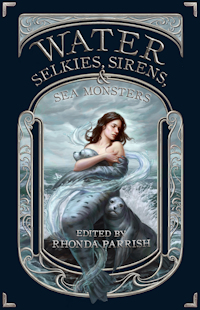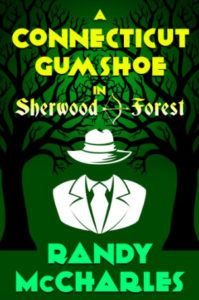
The tenth iteration of the When Words Collide convention took place over the weekend. It was 100% virtual and was a lot of fun.
One of the panels I was on was the Tyche Presents one, where Tyche Books had some of their authors attend and do brief readings from their work. Because some people who weren’t able to attend the panel messaged me on Twitter with their regrets and some who were able to attend had inferior audio I’m pleased to provide text versions of the readings which were featured at that panel.
It’s certainly not the same as actually being there, but perhaps it’s the next best thing 🙂
Each of these excerpts should take about three minutes to read.
We began the panel with an reading by E.C. Bell from her latest book in the Marie Jenner series, Tying the Knot.
Excerpt from Tying the Knot by E.C. Bell
This reading is from Tying the Knot, the 7th book in the Marie Jenner mystery series. In this book, Marie and James go to Las Vegas so Marie can move on James’ Uncle Jimmy, whose spirit was trapped there when he died, apparently of a heart attack. Uncle Jimmy is haunting psychic Crystal Desmoines, and Crystal would very much like him to leave.
This reading is the first time Crystal and Marie meet.
When I researched Crystal Desmoines and found out she was running a booming little psychic business in Vegas, I expected to find her living in a nice house in the suburbs or something. But that was not where the GPS took us.
James pulled the vehicle into the parking lot of what looked like a rent-by-the-hour motel. We parked beside a swimming pool covered in algae blooms, with a couple of people asleep on deck chairs by it. It looked like they’d slept there all night.
“Are you sure this is the right place?” I asked.
“What were you expecting?” he replied.
“Something better than this,” I said.
We walked up the cheap carpet-covered stairs and through a door to an open hallway that looked down on the back alley. I could hear TVs and music blaring, and from somewhere toward the back, a child cried.
“This is depressing as hell,” I muttered.
He didn’t answer me, just walked the hallway, looking for # 204. Found it, and stood, staring at the scarred wooden door for a long moment. Then he rapped on the door twice. Hard.
We could hear noises behind the door, but no one answered. “It’s James Lavall,” he said, and knocked again. “We have an appointment.”
More noise, and I realized we were hearing cats meowing. Sounded like a lot of them. And then a woman’s voice.
“Move your little fuzzy asses,” the voice said. “I gotta get the door.”
“She’s a cat woman,” I whispered.
“Great,” James said. Then the door burst open, and Crystal Desmoines stood, framed in the doorway. She gasped when one of the cats made a break for it and loped down the hall.
“Grab him,” she cried. “Dammit, grab him before he gets away!”
James took off after the cat, with Crystal on his heels. I tried to blockade the door as the rest of the cats—mostly kittens— mewed and pushed to get out.
James made a grab for the cat who zigzagged away from him and then headed back the way he’d come. Crystal neatly grabbed the big tabby as he tried to run by her.
“Rambo,” she said. “You know you’re not supposed to be out here.”
She snuggled the cat as she walked past me, pushing the rest of the kittens back into the apartment with her foot.
I scurried through the door behind her with James on my heels. He closed the door as Crystal set the big tabby on a table next to the closet. He jumped down and scuttled down the short hallway and disappeared. Finally, we were alone.
Crystal smiled at us. “I take it you are Jim,” she said, and held out her hand to James.
“James,” he replied. “My name is James.” I noticed he did not take her proffered hand.
Her smile fell as she dropped her hand. Then she looked at me, and her smile returned. “And you’re Marie Jenner,” she said.. “I read about you. You’re a little bit famous.”
“Huh,” I said. “I didn’t know that.”
“I saw the video,” she replied. “Amazing stuff.”
She was talking about the video of me moving on a whole bunch of ghosts, on live TV. My fifteen minutes of fame.
“Yeah,” I said. “Amazing.”
“How did you make all those spirits move on, all at once?” she asked. “I can’t even get one of them to get out of my space, for heaven’s sake. And you moved 100—”
“103, actually,” I said. All right, maybe that was my ego talking, but moving on 103 ghosts at the same time was kind of a big deal.
“That’s incredible,” she replied. Then she seemed to realize that we were all still crowded in the little entrance of her apartment.
“Sorry,” she said, and walked past us, to a doorway on the right. “Come in. I imagine you want to talk to Jimmy.”

Marie Jenner just wants a Vegas holiday.
When psychic Crystal Demoines tells James Lavall that his uncle’s spirit is trapped in Las Vegas, Marie is thrilled. All she’ll have to do is help Jimmy “anything for a buck” Lavall move on to the next plane of existence, and then she and James can have the holiday of her dreams.
But she never dreamed that a lieutenant of the drug kingpin from Edmonton would be staying at the same hotel as her and James, and that James would become his new best friend. Or that she’d have to find Jimmy’s girlfriend Rita—who disappeared the same night Jimmy died—before he would finally move on. Or that the most powerful man in the hotel would be looking for Rita too. To find the money she stole.
And Marie never dreamed that she’d be planning a Vegas wedding in the middle of it all. But she is.
Looks like her dream vacation is about to become a nightmare.
Following Eileen’s reading we were treated to three separate readings from very different stories from the Water: Selkies, Sirens and Sea Monsters anthology.
Excerpt from “Nure-Onna” By Marshall J. Moore
Kazusa, Japan. 1576.
The dead fisherman stared blindly up at the grey sky above, his mouth open in a last, silent scream.
“Another one,” Okabe Yukiko frowned. “That makes three.”
She stood, tucking her hands back into the sleeves of her kimono. A tall, knife-thin woman, she cut a striking figure as the salt wind blew her hair back from her face.
“So?” her companion asked, looking at the corpse with revulsion.
“So the killer is still active.”
“What killer?” Fumiyo Mitsuhide snorted and spat into the sand. The thick glob of phlegm narrowly missed Yukiko, landing instead just beside the body lying stretched along the tideline. “This one was a fisherman, like the others. They drown sometimes.”
A cool breeze rolled in from the sea. Yukiko shivered and pulled her kimono more tightly about her.
They stood on a long, narrow spit of beach beneath a cloudy sky. To the north lay a long cape of land that formed the shallow bay, its shoreline comprised of rocky cliffs and narrow, pebbly beaches. The coast was dotted by a handful of fishing villages, all under the ownership of one Kishimoto Haru, Mitsuhide’s sworn overlord and Yukiko’s erstwhile employer.
As a jizamurai, the lowest rank of the landholding nobility, Kishimoto held only this narrow stretch of coastline as his domain and had only Mitsuhide as his sole samurai retainer. The deaths of even two of his vassal fishermen would have a significant impact on Kishimoto’s yearly tax revenue, and so he had enlisted Okabe Yukiko’s service to assist Mitsuhide’s investigation into the mysterious deaths.
Yukiko fixed Mitushide with a critical stare. He was a hirsute man of middle years, broad-shouldered and thick in the belly. A deep scar bisected his face from one temple to the opposite cheek, necessitating an eyepatch. His kimono was nearly as ragged as Yukiko’s own, but he bore the dual swords that denoted his status as a samurai with evident pride.
“These men were not drowned,” Yukiko said, reminding herself that she had been hired to assist Mitsuhide in his investigation, not the other way around.
“Looks pretty drowned to me,” Mitsuhide frowned. “His skin’s all pale and wrinkly. They get that way after some time in the water.”
“True,” Yukiko admitted. “But look at his eyes.”
“What about them?”
“They’re still there,” she said. “Fish eat the eyes first.”
“Maybe they weren’t hungry.”
“Or maybe he wasn’t in the water long enough for them to start,” Yukiko said. She picked up a piece of driftwood lying in the sand and used it to carefully turn the corpse’s head over. “Look at his neck.”
Mitsuhide looked, frowning. There were two dark puncture wounds in the dead man’s neck. “Looks like a snakebite.”
Yukiko nodded. “I thought so as well. But look how far apart they are spaced. Have you ever seen a snake with a mouth that wide, Mitsuhide-san?”
Mitsuhide scratched his beard. “It might have been two snakes, with one fang apiece.”
Yukiko did not laugh. Instead she drew her curved tanto dagger from her obi, the sash that served as a belt. Kneeling, she drew the blade across the waterlogged corpse’s arm. No blood welled from the cut.
“Tell me, Mitsuhide-san,” she said, her expression grim. “Do you know of any snake that can drain all the blood from a man’s body?”
Frowning, Mitsuhide shook his head.
“Then your master was right to hire me,” Yukiko said, standing. She turned, the wind whipping her long dark hair from her face as she gazed out at the roiling sea. “There is a ghost preying on your people.”
Excerpt from “Depth Charge” by Laura VanArendonk Baugh
U-33 was a very busy lass, and certainly no lady. On 20 November 1940, she sank three steam trawlers off Northern Ireland: one in the morning, one in the late afternoon, and one in the early evening. By eight thirty the next morning she was shelling another trawler, the Sulby, sinking her in under two minutes. The Sulby crew had a clear view of the German commander laughing at them as they scrambled into two lifeboats and choice seats as, one hour later, the U-boat sank the William Humphries. That crew of thirteen shared a single lifeboat, according to the Sulby survivors picked up the next day. But the boat from the William Humphries, and the second from the Sulby, were never found.
Two bodies eventually washed ashore from the William Humphries. Neither was my bridegroom’s.
I was living north of Glasgow, not far from where the William Humphries went down. My people were from the northeast, but I had come to the city when the war demanded more workers. I lived now in a boarding house for unattached ladies, and I worked at the shipyard.
The John Brown & Company shipyard was quite the largest fish in the Firth of Clyde. The yard had produced destroyers for the Great War and then liners such as RMS Queen Mary and RMS Queen Elizabeth, and now was building ships for the new war. Landing there was a plum for me, and life would have been fine if not for the new war. And Caelan’s death.
I was called from my typewriter on a grey January day. “Someone to see you,” Mr. Atcheson said. “Said he’d wait outside. In the cold, I suppose.”
“Who?”
He shook his head. “Haven’t the slightest. Ministry of something or other, though, by the looks of him.”
The stranger looking over the firth did appear like a government man, all dark suit and low hat. He had an overcoat against the January weather and aviator glasses despite the grey overcast. He turned their smoked lenses on me as I approached. “Miss Tennent?”
“Yes?”
He didn’t introduce himself. “I’d like to speak to you about something a little unusual.”
I had heard worse lines in the Glasgow pubs. “Go ahead, then.”
“Miss Tennent, the John Brown and Company shipyard is critical to the welfare of the United Kingdom. The confluence of the Clyde River and other waters make this an ideal building and launching site, with ships sailing away into the firth—”
“I am sure you have a good purpose in explaining the significance of this shipyard to one employed here,” I interrupted, “but my tea break is short, and we’re standing in the wind, and perhaps you’d better skip ahead.”
For just an instant he was offended, visible in a tightening of his mouth below the impenetrable glasses, but then he nodded. “I apologize. I am accustomed to a sidelong approach for rather more resistant audiences.”
That mild apology helped. “What’s the unusual topic, then? What do you expect me to be resistant to?”
“We’re looking for someone with special talents to recruit into a new program. That’s why I came to speak with you.”
I laughed aloud. “Special talents? I’m a typist in a pool, Mr.—?”
He did not offer his name. “Miss Tennent, you come from a distinguished line.”
“I come from a village whose name you probably couldn’t pronounce, in the hills along a sleepy loch.”
“Your given name is Dierdre. Is that for the fabled Deirdre of the Sorrows?”
Oh, the arrogant ignorance of the English. I was named for Dundbhairdghall, or Dùn Deardail for less agile tongues, an Iron Age fort not far from where I was born. “Deirdre of the Sorrows was an Irish princess.”
“Ah, but your family was Irish before they were Scottish.”
This was true; at its narrowest the sea puts only twelve miles between the coasts, and we were hardly the only line to have crossed it. “That’s so, though I’m not sure why that should—”
“Your mother was a descendant of Niall of the Nine Hostages.”
That caught my attention. Niall Noígíallach wasn’t a casual reference for a Sassenach. It was also true. Still, I didn’t know what he was getting at.
“She came of the same descending line as Colmcille, if I’m not mistaken.”
He did not say it with the possibility that he might be mistaken. And this was a disturbing amount of family knowledge, tracing my lineage to the sixth century and to a saint. “We’ve barely discussed it.”
“Your family still lives along the loch.”
“And why should we move from where we have resided for hundreds of years? Where should we be, if not there?”
He raised his hands in a gesture of peace. “I only mean to say, you inherit a considerable history.”
“And a lot of good it’s done me, as you can see by my place as a typist in Clydebank and my address at a boarding house.”
“It could do some good for the United Kingdom.” He tipped his head forward, his unseen eyes fixed on me, reaching for some connection I was not willing to offer.
I regarded him suspiciously. “If you’re encouraging for the war effort, I’m already employed at a shipyard.”
“Anyone can type. I’ve come to you for other skills.”
Something stirred deep in my mind, a hereditary fear of torches and pitchforks and iron nails. For a moment, my mind ran wild with family stories and tales of tragedy.
“So, if you could see—”
“I have quite a stack of typing to do,” I said abruptly, “and I’d best get back to it.”
He looked at me for a moment. “I’ll be staying on in Clydebank for a week or two, if you should care to hear—”
“I’m not likely to.” I turned and walked back inside.
Excerpt from “Adventures in Hut-sitting” by Rebecca Brae
Hester a witch who’s hut-sitting for Baba Yaga when a kelpie kidnaps a new friend’s child. She agrees to help and quickly finds herself in over her head LOL
I jumped back as a dappled storm gray mare charged to shore on waves born of no wind. The beast stood before us, hide twitching, eyes like colored galaxies eddying in the blackness of space. It was at once beautiful and powerful and utterly terrifying.
I held my ground. I wasn’t certain I knew any spells powerful enough to fend off a creature such as this, but I felt in my bones that running was not a survivable option.
Holding the kelpie’s gaze, I summoned my best don’t-mess-with-the-witch-voice and ordered it to bring the kit it had stolen to shore, unharmed.
It tossed its head and let out a grating cry somewhere between a whinny and growl, never once breaking eye contact with me. The silvered mane frothed about its neck.
I sighed, looking between the bridle and the beast, knowing what had to be done and yet fighting the knowledge. What else did one do with a bridle?
I swear the kelpie smiled as I slipped the harness around its snout. All I could see was teeth, serrated and murderous. The beast lowered its head, allowing me to hook the top strap over its ears, and then casually snapped at my leg. Luckily, my spell component pouch was in the way. From how quickly it spat it out, I’m guessing liquefied lizard toes and hwriupt dung balls were not to its liking. (NOTE: Get new spell component pouch.)
I tossed the reins over its head and caught them against its neck. The kelpie’s hide was slick and cool, covered with something more like jellyfish tendrils than fur.
Riding a kelpie down to its underwater lair was about the last thing I ever wanted to do, but Babs had entrusted Pasha and all its contents to me. It was my choice to help Mei, so this was my responsibility.
I called an air elemental and wrapped the sprite around my head, hoping its air would last longer than the kelpie’s desire to drown me.
Holding the reins with one hand, I grasped its mane with my other, intending to pull myself onto its back. The kelpie interpreted the slight loosening as its cue to go.
It turned and dove into the lake. I barely kept my grip as water surged around me, dragging at my robes. And then, we were underwater and I was stretched out, flying above the kelpie’s back. Down and down we went to depths as black and cold as a winter’s night. I could see nothing, not even my cantankerous mount. A great weight pressed on me from all sides. I held my breath as much as I could, only breathing when my lungs felt like splitting, and then only in short gulps so I would not exhaust my air elemental too soon.
Just when my fingers grew so numb I doubted my ability to hold on, we surfaced in a cavern. Thick, knobby columns of white stone hung from the ceiling. Some barely touched the water’s surface and others descended to the bottom. Luminescent blue dots glowed on the ceiling in an impossible starscape. From each point of light, thin lines of suspended droplets extended down and waved in the slight breeze of our arrival. They looked like strung beads, beautiful and innocuous, which is how I knew to stay well away from them. The cave would have been lovely if not for a heavy stench of decay.

We finished off the readings with one from Randy McCharles’ second Sam Sparrow novel, A Connecticut Gumshoe in Sherwood Forest.
Excerpt from A Connecticut Gumshoe in Sherwood Forest by Randy McCharles
“The Sam Spade!” Maid Marian practically gushed. “The investigator from the future who visited my Robin in Camelot not once, but twice. To be honest, I was unsure I should put stock in such wild tales.” Robin’s fiancé ceased speaking and stood looking at Sam, as though expecting him to justify himself.
As had happened a few times during his visits to the past, Sam’s stomach tightened, and the word imposter burned a path through his mind. When he first arrived in Camelot and introduced himself to Effie as Sam Spade, one of Humphrey Bogart’s most memorable characters, it had all been a bit of flirtatious fun. The Wizard Merlin had charged him with being a Royal Investigator, and the street-smart private detective Sam Spade seemed to fit the bill better than down-on-his-luck, ex-cop Sam Sparrow. He’d wanted to impress the young woman and, well, Sam Sparrow wasn’t much to make an impression. He still wasn’t, though Sam felt he had more going for him today than he did then.
Sam had almost come clean a couple of times, just to ease the guilt if nothing else, but what good would it do? No one in the past knew Spade from Sparrow from Spalding. It would just confuse people. He did that well enough without going looking for it.
Addressing Maid Marion, he allowed a smile to cross his face, and his left cheek twitched, Bogart’s signature tick in his role as Sam Spade. “I’m not certain I should believe the tales I’ve heard about you either.”
Marian’s eyes went wide. “You’ve heard of me? In the future? In a far-off land?”
Sam nodded. “You. Robin. Tuck. All the Merry Men.”
Marian frowned. “Merry Men?”
Robin rested a hand on his fiancé’s arm. “I’ll explain later.”
Sam felt he should backtrack a little, just in case Marian got too excited. “Where I come from, we have stories, histories passed down from generation to generation. I can’t be sure how accurate they are, but you and your friends are remembered as the good guys, so I’m pleased to make your acquaintance.”
“Well,” Marian gushed. “If you say we are the good guys, as you put it, then I must believe you. Has Robin told you his plan?”
“His plan?” Sam echoed.
“Now, Marian.” Robin again placed his hand on her arm.
She shook it off. “If your friend Sam is from the future, he may know if your plan succeeds or fails. ’Twould be foolish not to ask.”
Friar Tuck nodded. “The Lady speaks wisely.”
Robin shook his head and gave Sam a hard look. “My friends do not like my plan. They seek to enlist your support against it.”
“That is unfair,” Tuck said. “For all we know, Sam will tell us his future memories of our time say your plan is a brilliant success.”
Sam took a step backward and pushed out with his hands. “Now hold on. I’m no historian. I’ve heard of you. I-I watched a movie about you. I barely remember it, but I think it was a comedy, so probably not very accurate. And you’re remembered as a story, not history. Stories tend to be made up a little. Don’t look to me to tell you what side of the bed you’re going to wake up on.”
All three of his audience gave Sam a puzzled look. Then Tuck said, “I know not the meaning of such words. Perhaps it would be best if Robin lay out his plan.”

And Th-th-th-that’s all, folks. Try the risotto and tip your server!
😉
#EndingsAreHard

